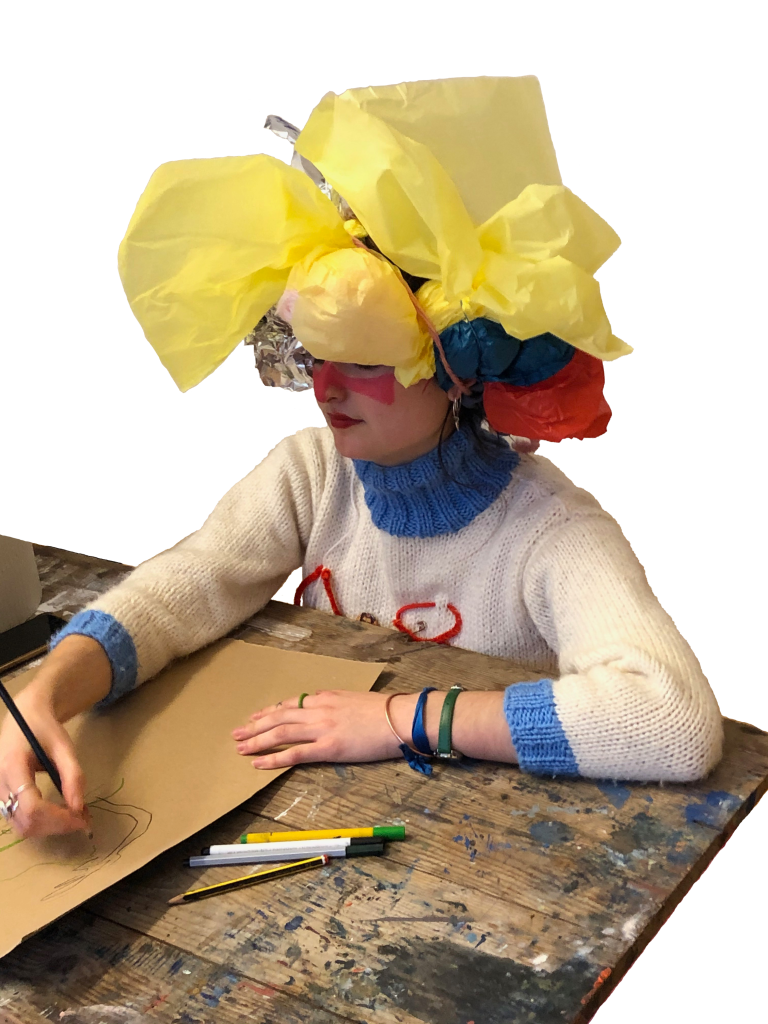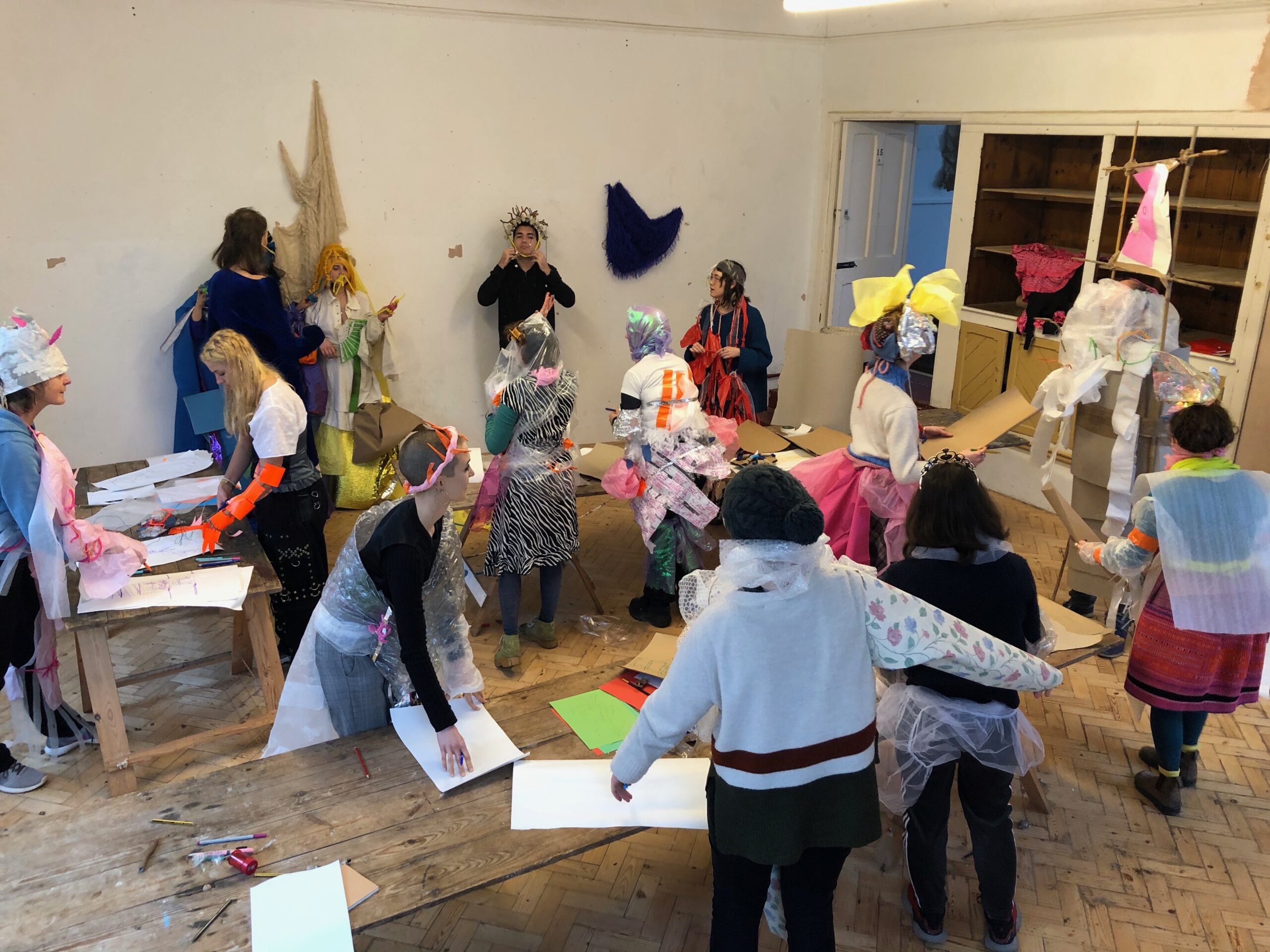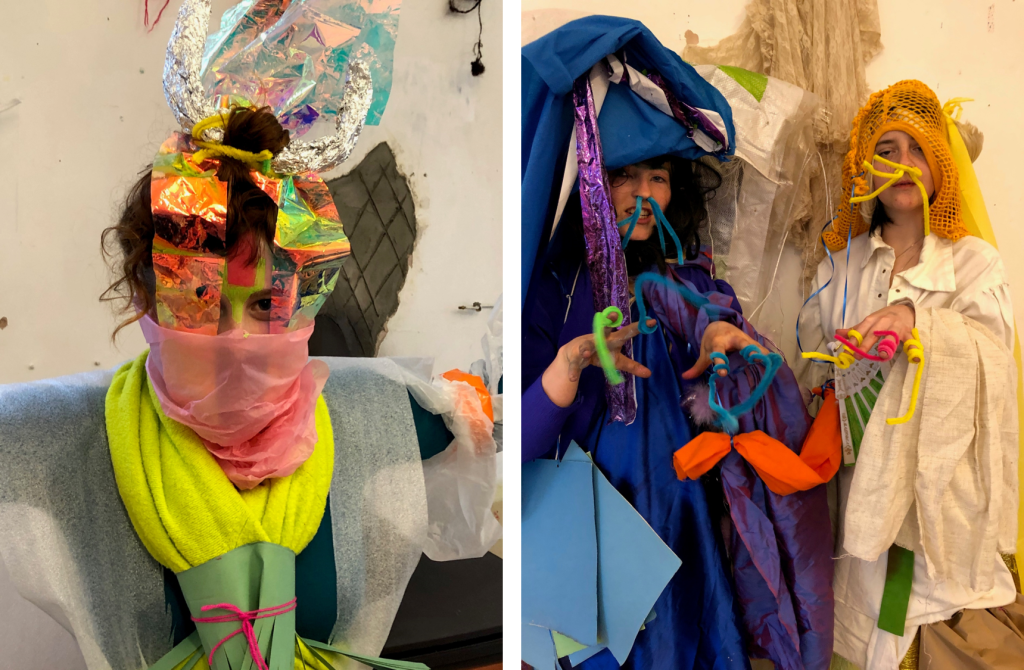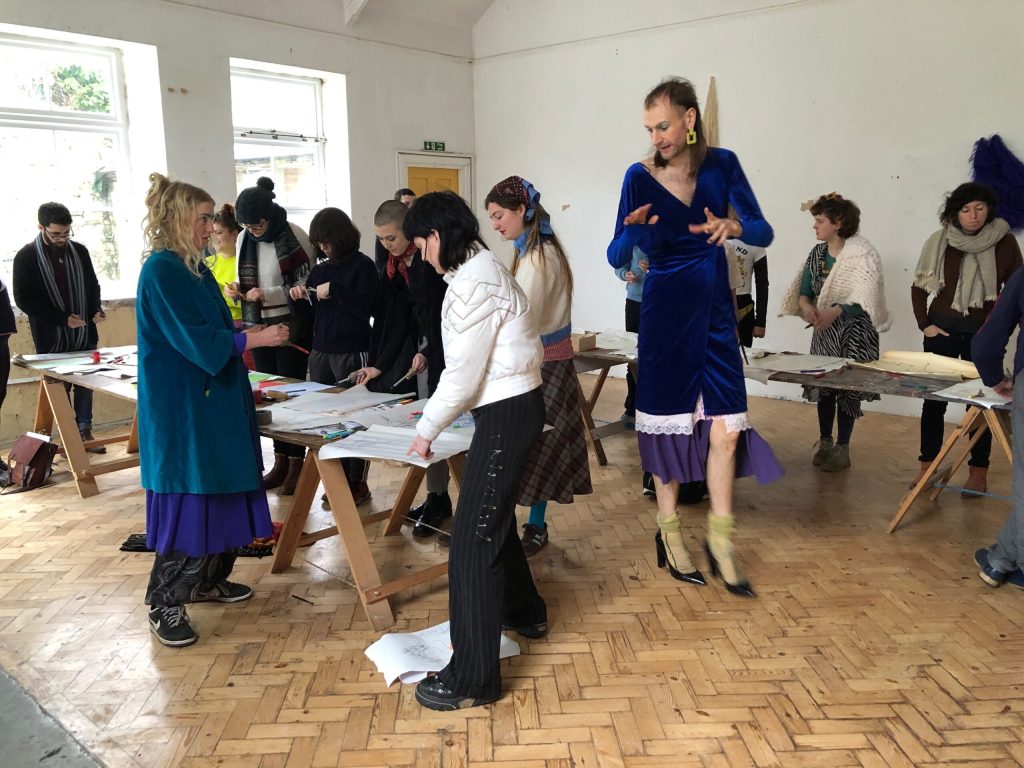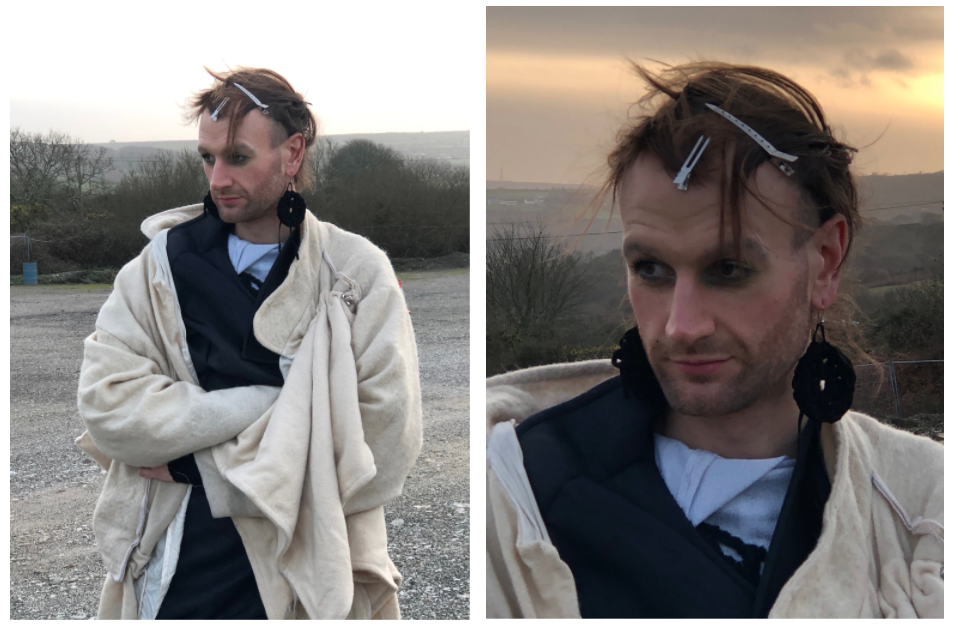Fifteen students from Falmouth School of Art travelled to CAST on January 31 2020 to take part in a workshop led by designer Robert George Sanders. The session began with playful approaches to gestural observational drawing, before the students were challenged to create their own three-dimensional garments from discarded materials, including cardboard, fabric scraps and flooring underlay. The day had started at Falmouth School of Art, with Robert George Sanders talking about his work and showing images of the Waste-Free Pantomine he created at Turner Contemporary in Margate, as part of their Turner Prize programme.
Julia Sheills, a third-year student at Falmouth, describes the talk and workshop in her blog:
Sanders was an impressive and elegant presence, a walking piece of art towering over us in his high heels, hair extensions and artfully humorous garments. His presentation of his work was touchingly personal, exploring a theatrical and joyful interaction with the fashion world, as well as a childhood framed by his evolving practice. The audience got a sense of a person who had never been constricted by conformity, and boldly carved out his own path in the world. The elaborate and skilfully made work mainly consists of bodacious garments and headwear, predominantly made from found or gifted materials, which Sanders explained was not so much an environmental statement, but rather a statement about being resourceful, explaining that he had always been poor, but had always been productive.
During his Masters programme at Central Saint Martins, Sanders created a community for himself in which his unorthodox interpretation of garment making made perfect sense, allowing for free expressions of gender identity and queerness and releasing those viewing the work from the toxicity of hetero-normative culture. He presented his impressively chaotic panto to us as an example of the community that his work has had the power to create, transforming what could have been a fashion show into a public facing artwork that engages not only its witnesses, but those involved in the making of the work in a way that seemed to be life affirming. Sanders spoke of his journey through his Bachelors and Masters as a fashion student to the realisation that his work belongs neither in the world of art, nor fashion, but somewhere in-between in a space that he himself has crafted.
After his inspiring presentation of his practice, Sanders directed a workshop with a mixture of third- and second-year FSA students and staff. Our initial experiments with drawing, directed by Sanders, were thoughtful and unconventional, creating new rules of representation and use of materials. He then guided us to use word association to first build a collage, and then a garment from waste materials such as plastics, pipe cleaners and tissue paper, based on a word of our choice. We all left the workshop feeling a renewed sense of curiosity in our working practices, with a refreshed impression of what representative drawing could be. We felt released from the restrictions of making things as a part of the course, having engaged in guided play for a day.
